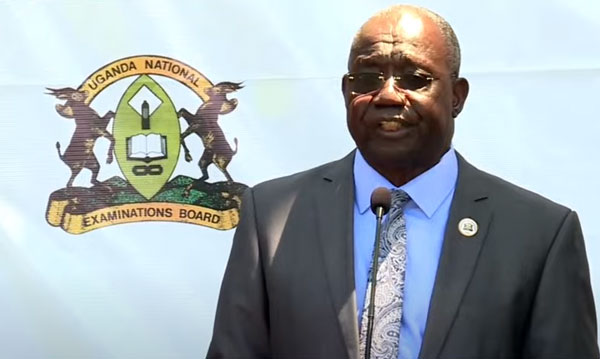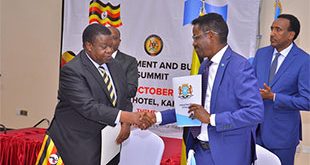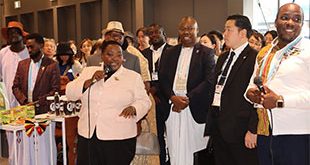
Kampala, Uganda | THE INDEPENDENT | Uganda National Examinations Board (UNEB) have criticized the government for its inadequate funding of crucial educational research, which is essential for assessing student progress and improving educational outcomes.
Led by Dr Tonny Muzaale, Director of Research & Development, the officers at the examinations body highlighted that, for years, the government has neglected to fund critical assessments like the National Assessment of Proficiency in Education (NAPE). This report is vital for understanding the academic achievements of learners in both secondary and primary schools.
DrTonny Muzaale made remarks on Tuesday at the release of the 2023 NAPE report, which evaluated the achievement of primary school students in literacy and numeracy. He further expressed frustration over the apparent lack of political will to fund essential educational research.
Originally launched in 1996, the NAPE assessment was designed to be conducted annually to evaluate teacher trainees as well as both primary and secondary school students. Initially funded by the World Bank.
However, the assessment has since encountered significant funding challenges due to inconsistent government support. Despite sporadic budgetary allocations, the last instance of dedicated funding occurred in 2018. Comprehensive assessments, including evaluations of secondary students, last received full funding in 2014.
Dan Odongo, UNEB’s Executive Director, also revealed that despite the report’s significance, UNEB did not receive government funding for the 2023 assessment.
Instead, the research was supported by educational development partners, including UNICEF, the British Commission, USAID, Irish Aid, and the Netherlands’ Ministry of Foreign Affairs.
Odongo emphasized the importance of the National Assessment of Proficiency in Education (NAPE) report, describing it as a crucial tool for identifying educational challenges and guiding further research. He stated that the report in question acts as a beacon, illuminating where problems may lie and guiding additional studies to address these issues and enhance learning outcomes across the sector.
In addition to the challenges of limited or absent funding for research, Dr Tonny Muzaale highlighted a significant issue: research reports often remain unused by the government. He pointed out that these reports are frequently shelved and not employed to guide planning, resource allocation, or policy formulation.
To illustrate this point, he cited the recent collapse of the Kiteezi garbage site, which resulted in several fatalities over the weekend. Despite multiple research reports warning of the dangers associated with the site, the government’s lack of action was evident.
In the education sector, he noted that numerous reports from UNEB and other institutions consistently highlight similar issues, yet government planning and funding decisions suggest these reports are being ignored.
Professor Celestino Obua, the new UNEB Chairperson, chose not to directly criticize the government but emphasized the critical importance of the NAPE report and similar assessments for the education sector.
Professor Obua urged the team responsible for the report to reframe the findings in a manner that would capture the attention of political leaders, highlighting their significance in decision-making, planning, policy formulation, and resource allocation. Professor Obua also added that effectively showcasing the report’s impact could potentially attract increased funding for similar initiatives.
Meanwhile, the assessment surveyed 70,430 Primary Three (P3) and Primary Six (P6) learners from 1,770 schools across 136 districts, including 30 refugee schools and 8 special needs schools. The focus was on evaluating learners’ achievements and proficiency in numeracy and literacy in English.
The report unveiled a significant divide between urban and rural learners, as well as between those in private versus public schools. This stark disparity highlights the ongoing challenges faced by students across various educational settings.
Comparing the current results with those from a similar study in 2018, the report showed that “there is no significant difference” in learners’ achievement. For instance, the proficiency rate in numeracy for P3 learners increased slightly from 55.2% to 57.5% while the proficiency in literacy in English for P6 learners declined slightly from 53% to 42.7%.
The report also indicated that where similar questions were administered, the 2023 P3 and P6 learners found them to be simpler compared to the questions faced by learners in 2018, who had found them more challenging.
*****
URN
 The Independent Uganda: You get the Truth we Pay the Price
The Independent Uganda: You get the Truth we Pay the Price




